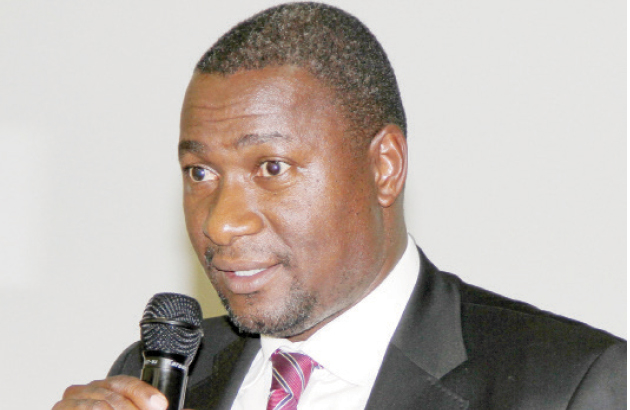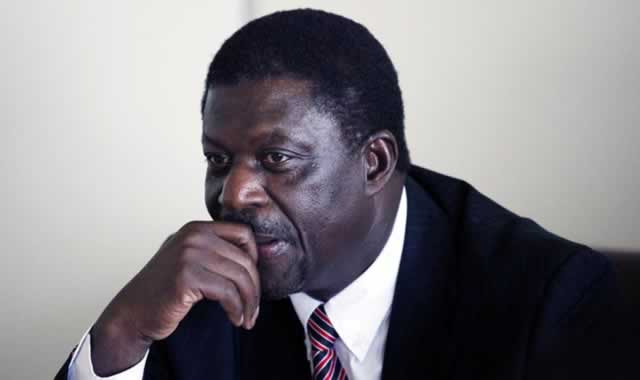Minister dissolves Potraz board over ‘rancid corruption’

Fidelis Munyoro Harare Bureau
THE government has dissolved the Postal and Telecommunication Regulatory Authority (Potraz) board with immediate effect over rancid corruption, gross abuse of financial resources and poor corporate governance at the establishment.
Information Communication Technology, Postal and Courier Services Minister Supa Mandiwanzira announced the dissolution of the Potraz board led by Ishmael Chikwenere.
The other members were Senator Aguy Georgias, Thandiwe Shonhiwa, Colonel Dennias Madanhi, Godfrey Muzondo, Sheila Sidambe and Saungweme Muchenje.
The board was appointed last October.
Minister Mandiwanzira said the decision to dissolve the board came after the ministry noted poor governance and gross abuse of financial resources of Potraz.
“It’s clear that economic and efficient use of the authority’s financial resources is not being practised or promoted by the board,” Minister Mandiwanzira said.
He said there had been persistent and unnecessary travel to conferences and meetings by both the board chairman and board members to meetings which include those which only management would be expected to attend.
“Such unnecessary attendances include attendance by board members to the Communications Regulators Association of Southern Africa (CRASA) legal and finance committee meetings at a cost of $6,105,” he said.
Minister Mandiwanzira said he was further concerned that the board gave authority for board members to attend locally-available training courses overseas, and the ministry had to refuse to endorse certain Cabinet authority requests.
The board had sought Cabinet authority request for two board members to attend a seminar on “How to chair board meetings” for eight days from May 11-18, 2015, in the United Kingdom at a cost of $24,410.
He also blocked another Cabinet authority request for two other board members to attend a similar seminar on chairing board meetings from April 27 to May 2 in the United Arab Emirates at a cost of $18,107 and another one for a board member who was not even an accountant to attend a professional accounting course meant for management in Mauritius from May 11-14.
Minister Mandiwanzira was also concerned about irresponsible misuse of resources. Since its appointment, the board spent $249,219 on travel expenses and per-diems.
Such an amount, he said, could have been used to buy over 1,246 computers to computerise more than 30 schools, a mandate the board has under the Universal Service Fund.
At one point, Chikwenere spent 22 days in South Korea attending the International Telecommunications Union Plenipotentiary conference held from October 18 to November 8 last year yet the relevant period for him for the conference was the first week.
During the trip to South Korea, Chikwenere travelled first class, while the deputy chief secretary and a deputy minister who are all senior to him, travelled in business class.
This, Minister Mandiwanzira said, showed complete disregard for the need to preserve financial resources at a time when the country was struggling to fund essential services.
He slammed the logic of sending two board members to attend the Universal Postal Union (UPU) council of administration for 26 days in Switzerland at a whopping $41,493. Another board member went for a strategic meeting in the same country for 27 days at a cost of $20,213.
“It’s a serious concern for me and the ministry that the chairman travels first class during this difficult time in which the country is trying to maximise the efficient use of its financial resources,” said Minister Mandiwanzira.
“The fact that over a period of nine months, excluding what has gone to other board members, the board chairman with the collective blessing of the board has received over $90,000 in travel allowances alone, makes it impossible to rule out personal interest with regards to the travel.”
To this end, it was clear to Minister Mandiwanzira that that no apparent attention had been paid by the board to Section 194 of the Constitution of Zimbabwe which sets out the basic values and principles governing public administration, including institutions and agencies of State.
“Instead of concentrating on such travelling, the board should have been attending to strategic issues,” he said.
“After more than one year in office, the board has failed to appoint a substantive director-general for Potraz and yet the institution requires to be sufficiently stabilised as it regulates a strategic and fast growing industry.”
Minister Mandiwanzira also noted that poor governance was apparent in the recent botched restructuring and unprocedural staff appointments, staff promotions and demotions that the board carried out at the institution without due regard to corporate governance principles. “My expectations of the performance of a board as important as that of the Potraz have not been met,” he said.
He said he was not satisfied with the entire board’s performance hence the decision to dissolve it with immediate effect.












Comments